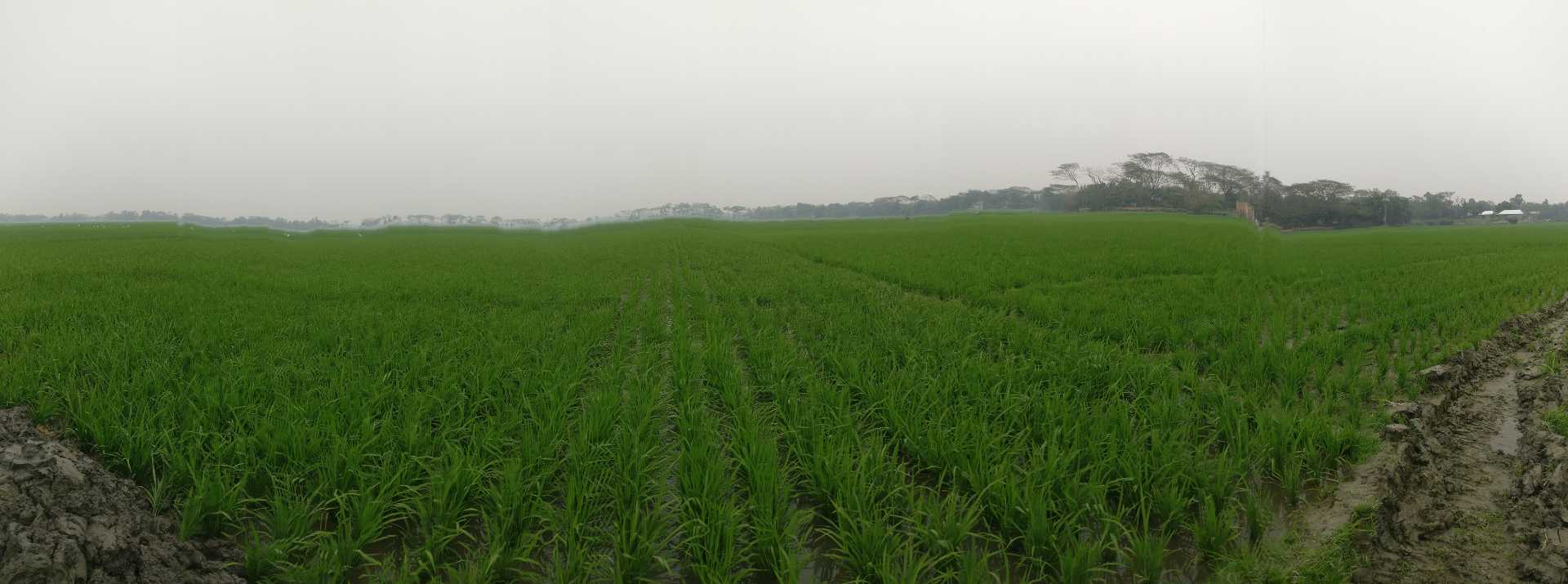Developing profitable rice production for food security

Dhaka, 4 April 2021: Despite achievements in the nutrition sector, the country is still facing many forms of malnutrition. Can producing a variety of rice ensure food security for Bangladesh? Diving into the issue, the International Rice Research Institute (IRRI) presented their research with their new upcoming rice varieties at the Gobeshona Global Conference under the theme of Food Security and Agriculture.
Bangladesh has achieved commendable progress in the nutrition sector. However, despite the achievements the country is still facing many forms of malnutrition. Different supplementation and fortification programs by the government and other nutrition stakeholders have been in place since liberation to improve the micronutrient deficiency in Bangladesh. In order to improve the poor nutrient situation, the Bangladesh Rice Research Institute (BRRI) is developing micronutrient enriched rice in partnership with IRRI.
The very first product of this partnership is vitamin A enriched genetically engineered Golden Rice. Research on other healthier rice for High Iron and High Zinc Rice is underway to combat Iron and Zinc deficiency, because Vitamin-A, Zinc, and Iron are among the most widespread micronutrient deficiencies concerning public health. And also, Golden rice is cheaper than local rice and it will also help be reduced micronutrient deficiency in our society.
Considering the adverse scenario of climate change, IRRI has developed a method of rice production known as puddled transplanted rice (PTR), to dry direct-seeded rice (DSR). The DSR can improve economic and environmental sustainability because it is formulated without flooding the field and through use of machine-aided sowing rather than transplanting that saves labour and water, cultivation costs, and can lower greenhouse gas emissions.
IRRI results also indicated that on ‘high’ and ‘medium’ landscape positions the yields of machine-sown DSR were similar to the yields of manually transplanted rice while it was 0.5-ton per hectare, lower compared with manual transplanted rice on ‘low landscape position'. The yields of hand broadcast sown DSR were the lowest on all three landscape positions. Both cost savings and added net return from the machine-sown DSR were also highest in medium landscape positions followed by the high landscape and low landscape positions.
In Bangladesh, rice is one of the major foods in the agriculture sector and based on the climatic conditions of Bangladesh, the country needs short and medium-term crop production. Thus DSR can be an alternative initiative to produce rice in drought-prone areas to maximize profit for the farmers. Additionally, Golden rice production can prove beneficial to the Bangladeshi people who are suffering from malnutrition.
“Considering the adverse scenario of climate change, IRRI has developed a method of rice production known as puddled transplanted rice (PTR)”
The current pandemic situation can reverse the gains in food and nutrition status of the country further; as per the estimated poverty rate expansion from 24-35% due to COVID-19.
From my point of view, rice marketing in Bangladesh is marred by a wide range of problems; including packaging, transporting, storage, distribution, and pricing. There is a comparative advantage in the production of high-yielding rice in Bangladesh but the flaws in the marketing system don’t allow a fair share of price to the farmers. In this situation, it draws a grey line over the benefit of the marketization of such variety of rice in Bangladesh. The role of the Bangladesh government to handle such upcoming new varieties of rice needs to be strengthened.
In conclusion, considering the above situations, knowledge sharing and capacity building can be a major initiative to share the methods of producing puddled transplanted rice (PTR), dry direct-seeded rice (DSR) to the local farmers. It is also necessary to build awareness among the farmers to produce golden rice as it will assist them to reduce their nutrition deficiency.

